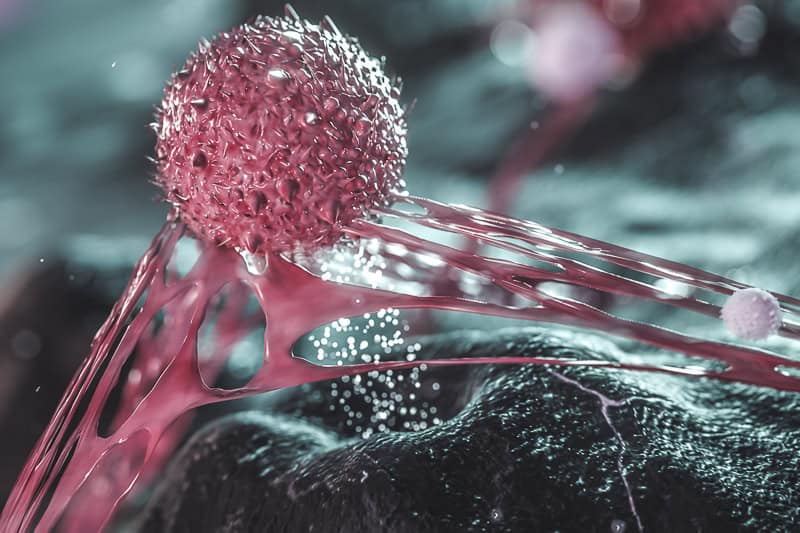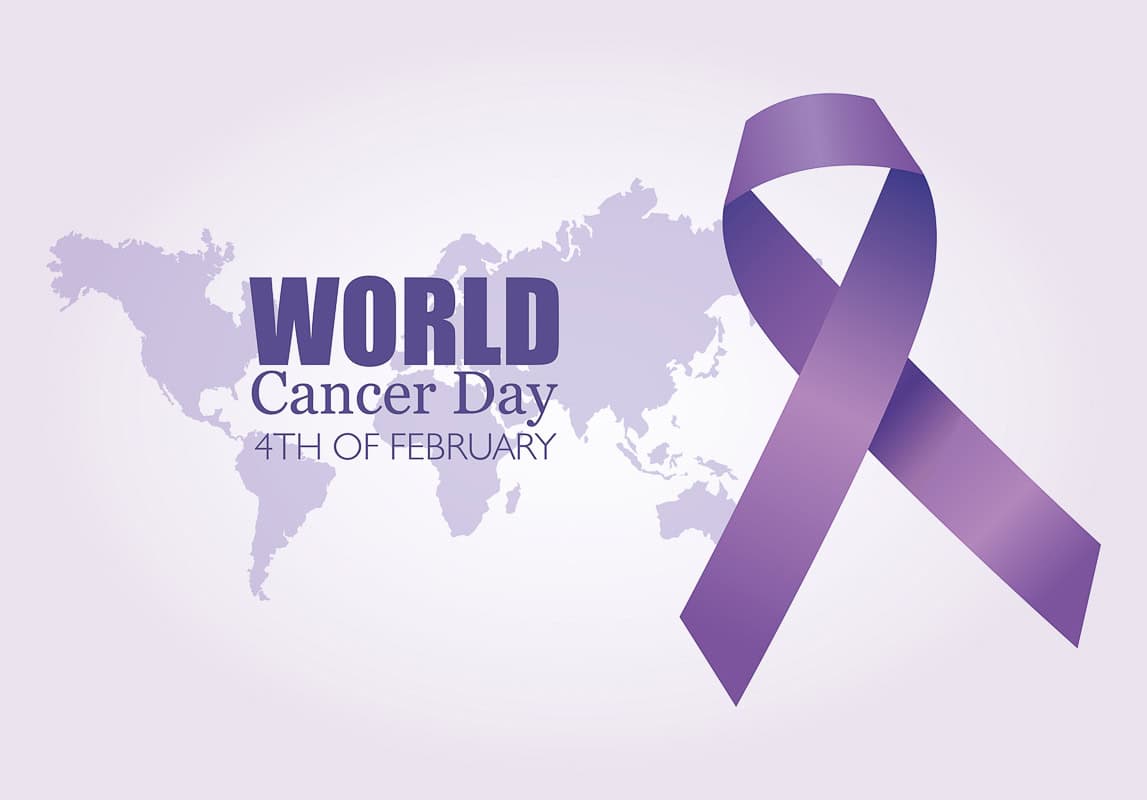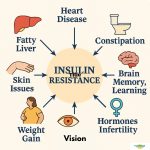What is cancer? Cancer is a complex disease characterized by uncontrolled cell growth. Discover the types of cancer below and how cancer starts. While significant efforts are put into understanding and treating this disease, prevention and early detection remain crucial.

In this article, I delve into the multifaceted nature of cancer, exploring its causes, risk factors, prevention strategies, and nutrition's role in its prevention and management.
Understanding the complexity of cancer is key. It empowers us to make informed choices that promote overall health and reduce the risk of developing cancer.
What is cancer?
Cancer is complex. The word cancer stands for a category of cancers. A particular organ in our body can have different types of cancers.
We all have cancer cells
We all have cancer cells, which are nano-microscopic cancerous cells, but not all these cells turn into tumor cells. That's because our immune system constantly checks for any disruption inside the body, neutralizing these cancer cells.
How does cancer start?
Imagine your body as a well-organized city. In this city, cells are the workers, each with a specific job. Normally, these cells grow and divide in an orderly, keeping the city running smoothly.
However, sometimes, a cell, instead of doing its job as required, gets damaged and starts producing harmful chemicals referred to as Reactive Oxygen Species (ROS).
When these reactions become uncontrolled, the cell gets overwhelmed. It can't repair, and instead of dying (apoptosis), the cell starts multiplying uncontrollably, ignoring the city's rule! This uncontrolled multiplication is a key factor in the development of cancer.
Cancer occurs when these cells hide from the immune system and hijack normal cells for food.
Types of cancer
As I mentioned above, there are different types of cancer. Here is a list of the most common cancers:
- Breast cancer
- Lung cancer
- Colon cancer
- Prostate cancer
- Skin cancer
- Pancreatic cancer
- Carcinomas
- Leukemia
- Lymphoma
- Sarcomas
- Brain tumors

What causes cancer
While the exact causes of cancer are complex and often involve multiple factors, some of the critical factors that can contribute to cancer development include
- Genetic factors: Some people inherit specific gene mutations from their parents, which can increase their risk of developing certain types of cancer. Acquired mutations occur during a person's lifetime, and they're caused by various factors, such as exposure to carcinogens, radiation, or certain viruses.
- Environmental factors: Substances like tobacco smoke, industrial chemicals, and toxins in the air, water, and soil can damage DNA and increase the risk of cancer. Radiation exposure from X-rays or ultraviolet (UV) radiation from the sun increases the risk of certain types of cancer.
- Lifestyle factors: Alcohol, smoking, sedentary lifestyle, poor diet, stress, and lack of restorative sleep are all factors that can increase the risk of cancer.
- Cellular Aging: As we age, our cells become more susceptible to mutations, increasing the risk of cancerous growth since there's no more new cell formation.
What feeds cancer cells?
Do you recall that cell that divides uncontrollably and does not respect the city's rules? We call these cells tumor cells.
All tumor cells are harmless until they get food, and they do so by hijacking normal cells for energy (mainly in the form of glucose).
Tumor cells can also grow their own blood vessels, a process known as neurogenesis.
According to Professor Thomas Seyfried, cancer cells can also thrive on glutamine, one of the body's most common and essential amino acids.
Cancer prevention
While there's no guaranteed way to prevent cancer, adopting healthy lifestyle habits can significantly reduce your risk. Here are some key preventive measures:
- Healthy diet: Consume a diet rich in a variety of fruits and vegetables. These are rich in antioxidants and fiber, which can help protect cells from damage. Plants also have phytochemicals to help the body destroy cancer cells and support healing during treatment. Avoiding highly processed foods, sugar, and high salt intake can help reduce the risk factor of getting and feeding cancer.
- Sleep: Lack of enough sleep can disrupt the body's hormonal balance, particularly hormones like melatonin, which regulate cell growth and repair. Poor sleep weakens the immune system by dropping the natural killer cells (white blood cells) and increases inflammation. Inadequate sleep can also hinder DNA repair, which can lead to cancer development.
- Gut microbiome: Bacteria in the gut help regulate the immune system, enhancing its ability to recognize cancer cells. Gut bacteria produce essential vitamins and anti-cancer properties, which aid in DNA repair and support cellular health.
- Movement: Physical activity can help maintain a healthy weight, boost the immune system, and reduce inflammation. Moving your body may also lower estrogen and growth factor levels and reduce insulin levels, which may feed cancer cells.
- Avoiding smoking: One of the leading causes of cancer is smoking. Tobacco smoke contains over 7,000 chemicals, including about 80 chemicals known to cause cancer!
- Alcohol: Excessive alcohol consumption can increase the risk of several types of cancer, including liver, mouth, and throat cancer. Alcohol can damage cells and inhibit cell repair. It can also increase estrogen and insulin levels, which may increase cell division and growth.
- Maintaining a healthy weight: As with smoking, obesity is one of the leading causes of cancer. This is primarily due to inflammation and insulin resistance, which can increase insulin-like growth factor-1 (IGF-1). Obesity can also increase high estrogen levels, leading to rapid cell division.
- Regular screening: Screenings help detect cancer at its earliest stages, often before it causes noticeable symptoms. Early-stage cancers are more likely to be treated successfully using less aggressive treatments.
Diet and Cancer
No one diet can guarantee that you won't get cancer. But eating a healthy, balanced diet can reduce the risk. A healthy diet is a cornerstone of cancer prevention. Numerous studies have linked specific dietary patterns to a reduced risk of various cancers.
- A healthy diet will help you maintain a healthy weight; as we've seen above, weight can affect the occurrence of cancer.
- A diet high in fiber will facilitate bowel movements, thus expelling out toxins and reducing cell damage in the colon.
- A diet rich in fruits, vegetables, whole grains, legumes, and nuts can significantly reduce cancer risk. These foods are packed with antioxidants, fiber, and polyphenols, protecting cells from damage.
- Drinking enough water helps flush out toxins and keeps the body hydrated. Water helps transport nutrients to the cells as it also removes toxins from the cells into the bloodstream.

Specific nutrients and their impact on cancer
- Processed meats and red meat: These foods are linked to an increased risk of colorectal cancer.
- High salt intake: Excessive salt intake can increase the risk of stomach cancer.
- Sugar and sugary drinks: High sugar intake can contribute to weight gain, which is linked to an increased risk of several cancers.
- Alcohol: Excessive alcohol consumption can increase the risk of several cancers, including liver, breast, and mouth cancer.
- Fried foods: Frying food mainly uses hydrogenated oils or trans fat, which can disrupt cell membranes. In deep frying, oil is oxidized, forming potentially toxic compounds.
- Highly refined or processed foods: These are foods that have been significantly altered from their natural state through industrial processes like frying, canning, smoking, or adding preservatives, artificial flavors, and colors. They're high in fats, sugar, and carcinogenic substances. High consumption of these foods can lead to obesity, inflammation, and cell damage.
I enjoyed researching this article and hope you find value in it.
With much love, Githu.
Interesting articles to check out
- The gut microbiome| Unlock the power of your healing
- The importance of a balanced diet for optimal health and well-being
- Urgent: Women's health at risk due to nutrient deficiencies


















Comments
No Comments